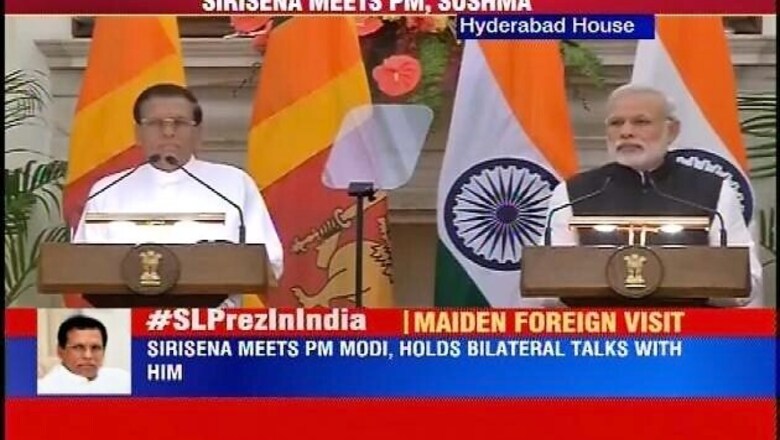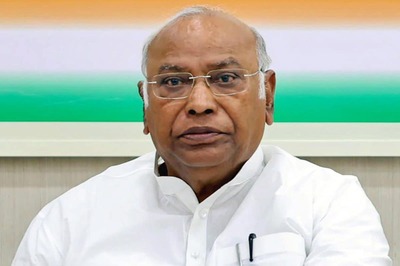
views
New Delhi: India sealed a nuclear energy agreement with Sri Lanka on Monday, its first breakthrough with the new government of the tiny island where China has been building ports and highways in a diplomatic push in recent years.
Under the deal, India will help Sri Lanka build its nuclear energy infrastructure, including training of personnel, the Indian foreign ministry said.
Later, India could also sell light small-scale nuclear reactors to Sri Lanka which wants to establish 600 MW of nuclear capacity by 2030, a Sri Lankan official and an Indian analyst said.
The deal came as Sri Lankan President Maithripala Sirisena began a visit to India, his first trip abroad since he swept to power in January, which has provided New Delhi with an opening to repair ties that had become tense under his predecessor.
"The bilateral agreement on civil nuclear cooperation is yet another demonstration of our mutual trust," Indian Prime Minister Narendra Modi said in a statement.
India had grown increasingly wary of former president Mahinda Rajapaksa's pursuit of closer ties with China, which became a key supporter of the island's economy after its 26-year-civil war ended in 2009.
China has built a seaport in the south of the country and signed a deal to develop a $1.5 billion port next to the commercial port in Colombo, raising fears Beijing is seeking influence in the island state with which New Delhi has had historical ties.
Ties worsened further after the Rajapaksa government allowed Chinese submarines to dock last year.
Modi said the two countries also agreed to expand defence cooperation, but gave no details. "This is my first visit and it has given very fruitful results," Sirisena said.
Since coming to power last year, Modi has reached out to neighbours, offering to build power stations and ports, in a bid to push back against China.
Next month he plans to travel to Sri Lanka and the Maldives where too Beijing is seen to be expanding its diplomacy as part of a strategy to build a network of ports in the Indian Ocean through which much of its trade and energy supplies transit.
Sirisena has pledged to pursue a more global foreign policy.
"It does introduce a kind of balance in Sri Lanka's external relationships," said Neelam Deo, director of Gateway House, an India-based think tank. "Nobody thinks that the relationship with China will diminish, but this is a better balance."
China said last month it hoped for continued "cooperation" with Sri Lanka despite a pledge by the new government to review Chinese infrastructure projects awarded under the Rajapaksa administration.




















Comments
0 comment